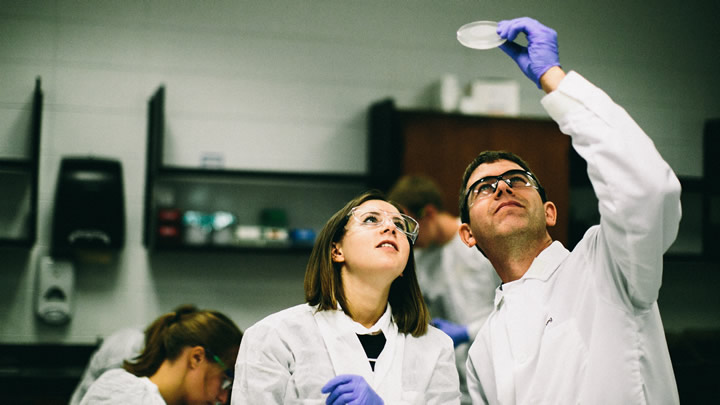Biography
I grew up in northwest Washington state in the land of evergreen trees and the Cascade mountains. Interests in biological research and parasitology developed as an undergraduate and propelled me to graduate school, which brought many new adventures and a love for the southwest US. I enjoy reading, attending concerts, exploring Michigan, hiking, and camping with my wife and three children.
Education
- Ph.D. in Biology (with distinction), University of New Mexico (2003)
- M.S. in Zoology, Michigan State University (1997)
- B.S. in Biology, Calvin College (1994)
Professional Experience
- University of Michigan Biological Station, Visiting Faculty (2019)
- Calvin University, Associate Professor (2013–present)
- Calvin College, Assistant Professor (2007–2013)
- National Institutes of Health (NIH), Postdoctoral Fellow (2004–2007)
- University of New Mexico, Postdoctoral Researcher (2003–2004)
Academic Interests
I love the biology and diversity of invertebrates, especially parasites and their hosts, and study them from ecological, evolutionary, and genetic perspectives. Before coming to Calvin, I was a research scientist at the National Institutes of Health near Washington DC, where I worked on the interactions between malaria parasites and the mosquitoes that transmit them to people. During my Ph.D. studies, I participated in the first global genetic study of the human schistosome parasite, Schistosoma mansoni, and led the most complete genetic study of its snail host, Biomphalaria. Schistosomes and snails continue to be subjects of my research, including those in North America that cause swimmer’s itch. One of my favorite things is incorporating research into the classroom with the phage research course offered to first-year students.
Research
- Swimmer’s itch on northern Michigan lakes (and elsewhere)
- Schistosomes and their snail hosts (everywhere)
- Bacteriophages
- Using molecular tools in ecology; e.g., using DNA to detect bacteria in Plaster Creek or swimmer's itch parasites in lakes








